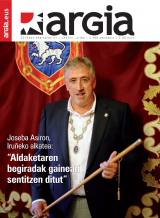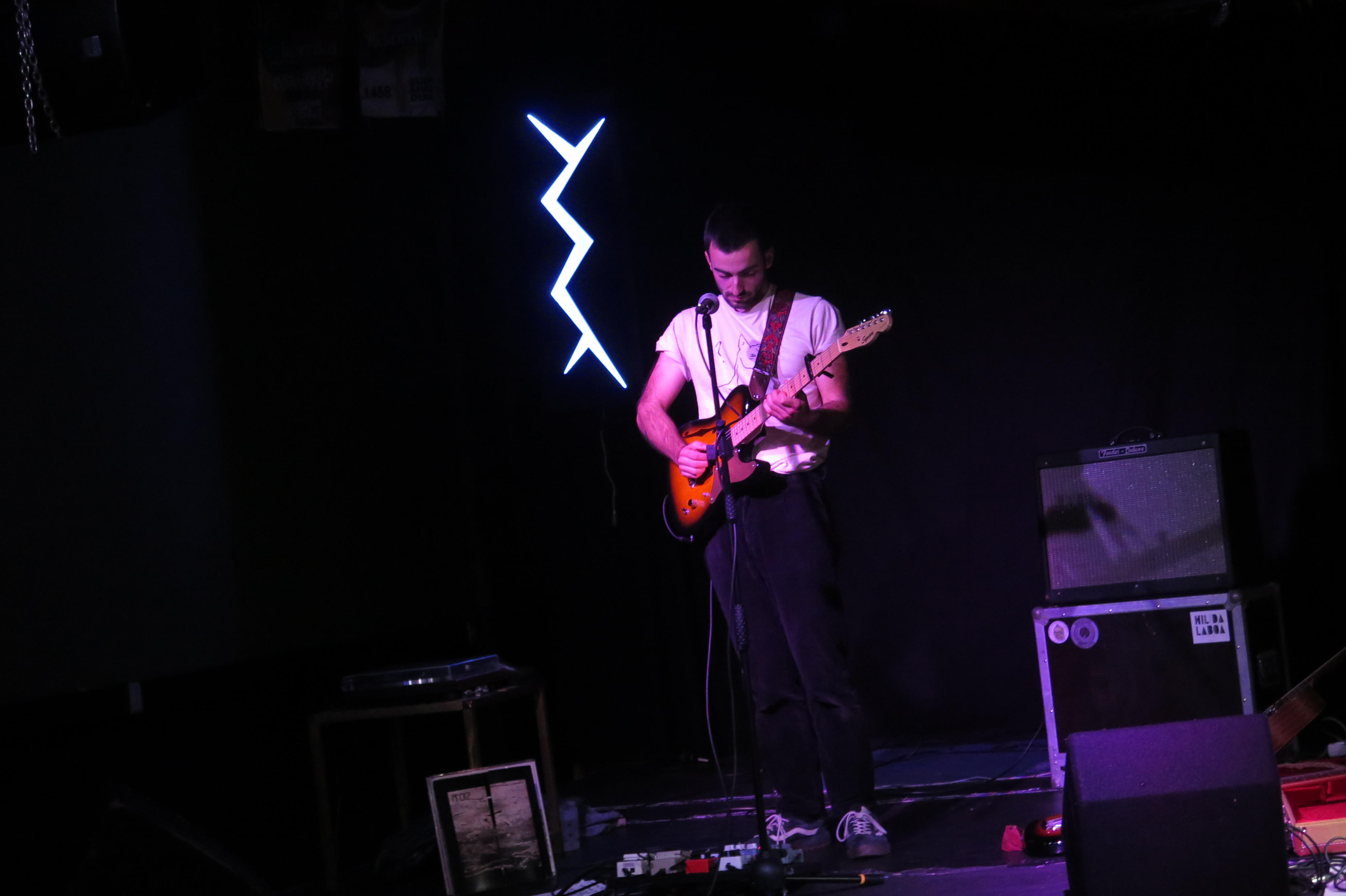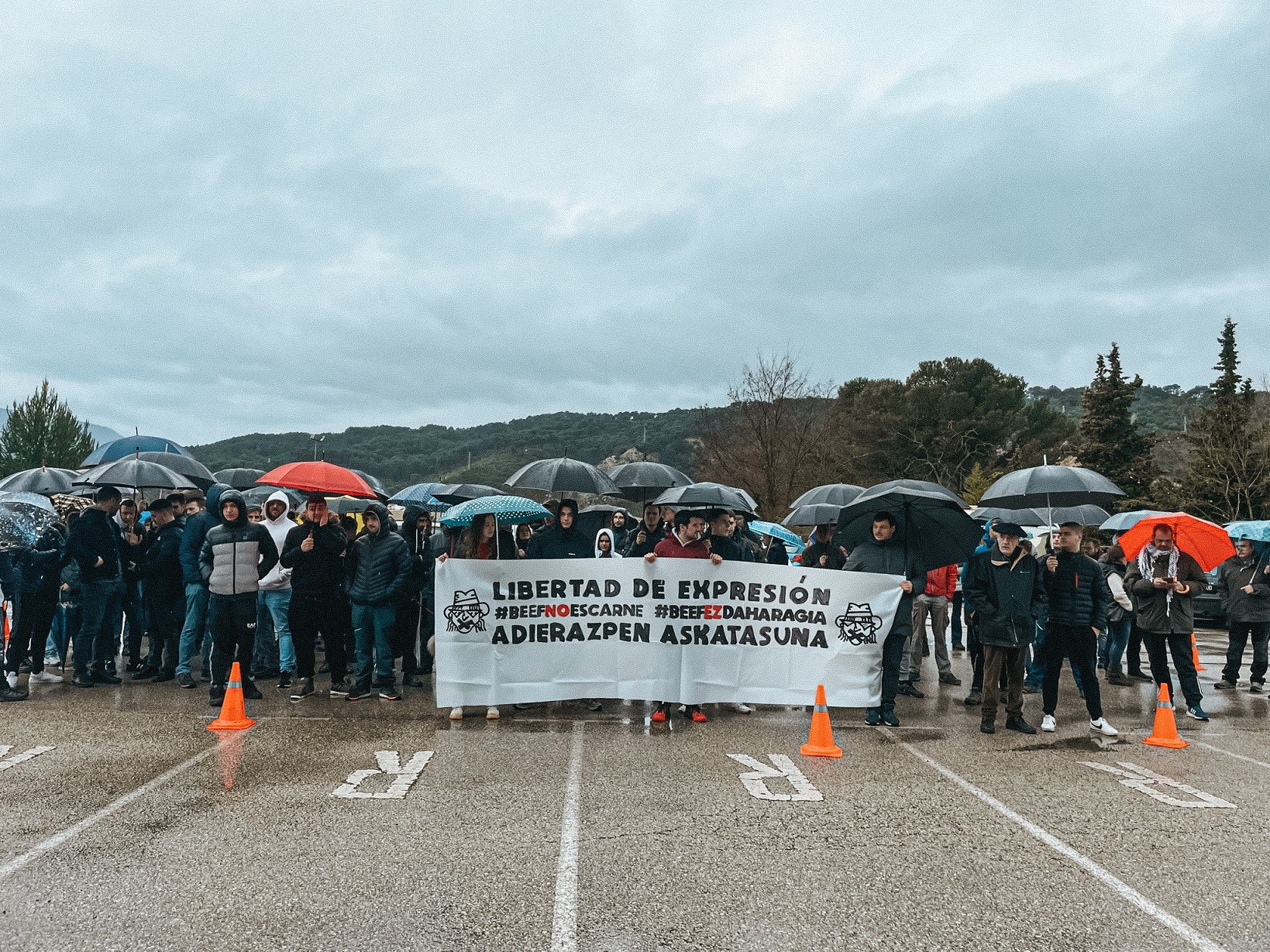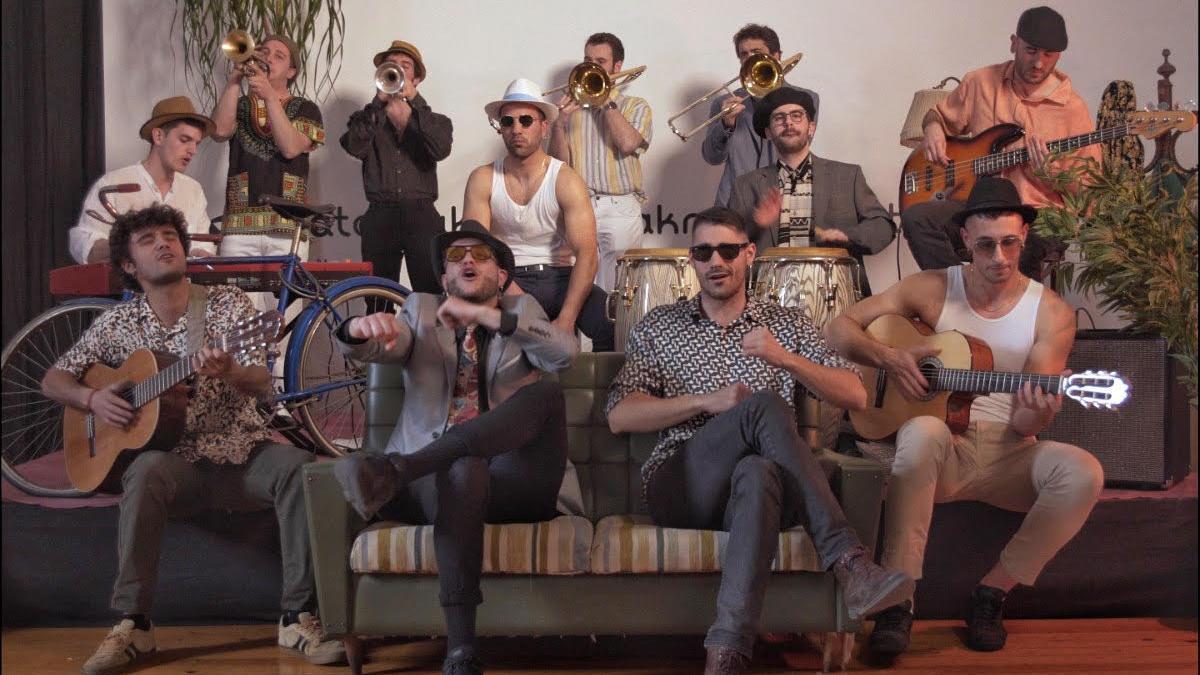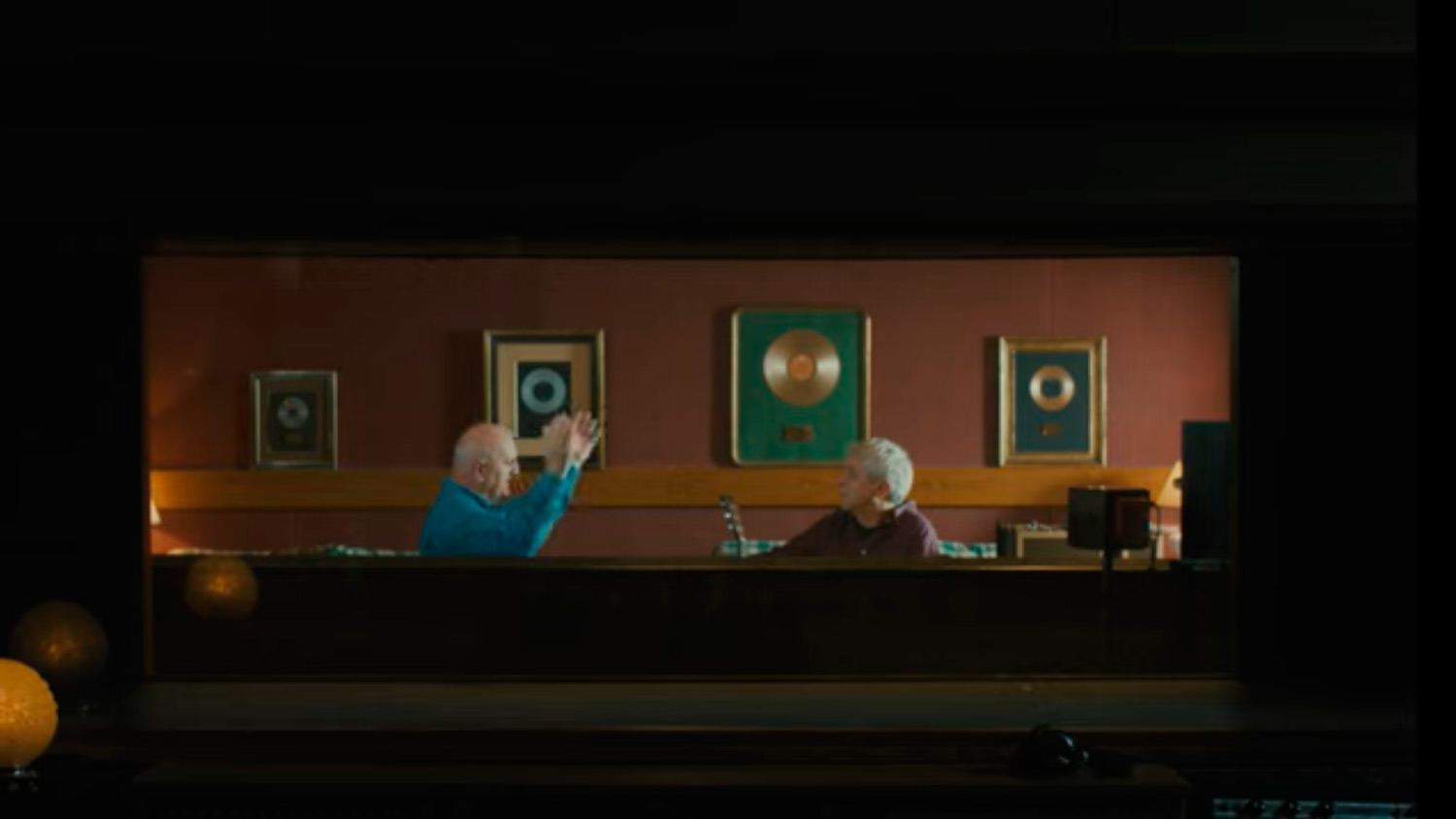Now is your time
- Electronic music has not had an easy way in these lands ruled by the Basque Rock Radical. Paradoxically, what in many European countries has been regarded as alternative music has arrived late and by commercial means. Prejudices still have a lot of force. However, in recent years, it seems that it has begun to make its way into the alternative areas of the Basque Country.
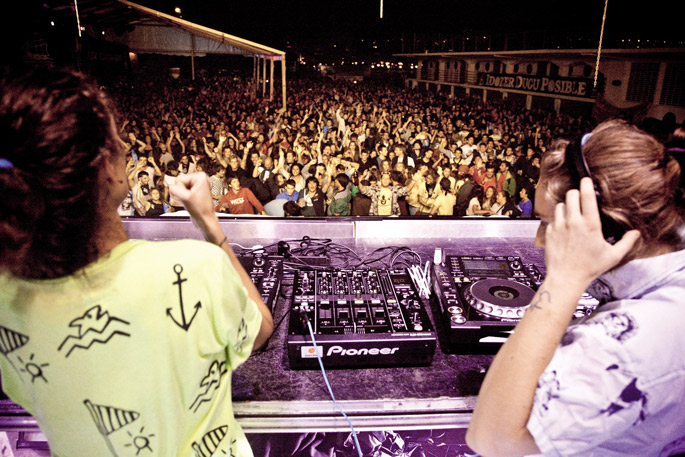
The long shadow left by Kortatu, Hertzainak and other related groups has given a punk rock air to the soundtrack of Euskal Herria for years. This phenomenon, however, also led to the marginalization and exclusion of other types of music in the lands of the Basque Radical Rock. Among them, and very notably, electronic music. That is why it has had a very different evolution here from that of other European countries: slow and remote from the alternative spaces.
Journalist Fermin Etxegoien recalls that post-punk groups such as Joy Division and New Order started using electronic or synthetic sounds that excited him, as well as other electronic trends that emerged in Germany. However, he says that they had no connection with the "resilient" music of Euskal Herria, and that they were considered "baked"."99% of Kortatu fans didn't know what New Order was and didn't care. That doesn’t mean that those of us who liked New Order didn’t appreciate Kortatu.”
In the 1990s, however, the solitary from Valencia came to the commercial premises of Euskal Herria, as well as to some rooms in which until then he dominated the Basque Radical Rock. According to Etxegoien, “some of those who heard punk joined that music, but in general it happened to everyone who spent the night. It was very playful and easy.”
Inverse
In Germany and England, especially in the latter, the transition between punk and electronic music was very natural. From punk came post-punk, techno and little by little the other variations of electronic music. One of these variations is the bakalau, which was born in eastern Spain. The young man, Ion Andoni Del Amo, has analyzed music and conflict in his thesis entitled Party & Borroka. “Here, influences have come in the reverse order: first bakalau, then electronic music and now post-punk groups are being created.”
The lack of that natural transition made the relationship between punk and electronic music difficult. “While they were almost hostile here, it was quite normal to hear one day techno and punk in the same alternative area as London or Berlin.”
Biases created by Bakalau
With the arrival of the bakalau, a series of prejudices emerged that are still attributed to electronic music, especially in gaztetxes, txosnas and alternative festivals. The Durangus researcher stands out three. “Among the prejudices, the origin was evident: it was considered Spanish. But there was also music that was associated with drugs and poor classes.” Electronic music was also criticized for depoliticization, putting the party above the struggle. But also in punk concerts, Del amo stressed that excessive consumption and the party were important elements in the Basque Country.
According to Del amo, it is possible that the arrival of the bakalau ahead of the rest of electronic music has reinforced prejudices. “However, neither the house, nor the techno, nor other similar ones, were well received in alternative spaces.”
This is not our style.
Although electronic music from the outside, under the cover of commercial nightclubs, had some route, production has been very scarce in Euskal Herria. Despite the obstacles, in the 1990s he managed to highlight Hemendik At! The group was the precursor. Following the line of Eurodance, they tried to make a “Basque radical bakalau”, maintaining the same attitudes and demands as the local punk rock. Etxegoien says that by then the bakalau had already been a phenomenon isolated by decay, but at the distance given by the time, it recognizes the merit of the team: “At that time, we were probably going to make a very cruel assessment, but now I see these attempts with great sympathy.”
Ion Andoni Del Amo has also reported that they suffered the rejection of some sectors: Cries like “This is not our style” were often repeated in txosnas or alternative festivals. when it was put on. “Now is your time,” Ex-At! sang at the time, but later the acceptance of his work has come. “After almost twenty years, young people know and dance their songs in the same places where they were once thrown away.”
Something's changing.
According to the data collected by Del Amo in his thesis, the trend is changing over the last five years. Electronic music has begun to have a presence that previously did not exist in some youth centers and holiday halls. There is no shortage of examples. In 2013, for example, the Bergara Gaztetxe held the Bergara Electronic Meeting organized by the Kogollos Party Krew DJ Group.
At the Plateruena Kafe Antzokia in Durango, on the other hand, they have organized 30 times what is known as the Electronic Night in four years. The Euskal Herria Zuzenean festival has had at least DJs since 2010, and electronic music also has its place in the last meetings organized by youth entities Ernai and Aitzina. In parallel, proposals such as El Txef, Patrol Destroyers and Las Tea Party have also gained some relevance.
The Tea Party DJs everywhere
If electronic music is progressing gradually in the alternative space, it is largely thanks to the DJ Las Tea Party mentioned above. The couple formed by the Vizcainas Lorea Argarate and Eva Gutiérrez have already gone through many popular festivities and festivities. “In many places we have been the first time they have programmed this format, and on many occasions, with fear and without knowing what was going to happen, the organizers have approached us. We have responded very quietly that it was going to go well, that we also take into account the response of the people.” That has been the case: with great success, they have put in dance plazas and halls of all kinds.
They say that electronic music has been “strange” for many in the Basque Country, but that biases are gradually being neglected. If compared to proposals like Hemendik At!, the songs that prick are not plagued with vindictive words. This does not mean that they do not use ideological criteria: for example, the electrolatino with machista letters is discarded. “We, we put Moombah sounds, and we are also creating. It has similar rhythms but they are not full of machistan comments.”
Are you forced by survival?
The alternative spaces, which were once the kingdom of the Basque Radical Rock, have opened in recent years the doors to another type of music. But what context has allowed it? Del Amor says that political change has its influence. “Now the main function is not resistance and struggle, but to attract and achieve hegemony.” He believes that this has facilitated the process, but not that it is the main reason. According to him, change has been possible because of the need to survive. “In Bilbao, for example, it was a conscious decision to introduce commercial music into the txosnas as a measure to attract more people.”
And Del Amor says that the trend started in the Basque capital has spread throughout the Basque Country, and more slowly, but also to electronic music. In this sense, it is noteworthy that commercial music such as reggaeton has been more easily integrated than musical electronics. “In general, txosnagune and gaztetxeak have been quite conservative in terms of cultural experimentation. In the alternative circuits, the same music has been heard for 20-25 years, and everything that has been left out has had a very difficult entrance.”
Things aren’t easy in fact, and it will be for one reason or another, but lately I’ve bitten my tongue more than I should for these two things: the culture of the sold out and the FOMO – the latter perhaps has to be explained, because it’s not said so many times: the... [+]
Ultra
La Furia
Baga Biga, 2024
---------------------------------------------------------
Cascanteko La Furia-k bosgarren diskoa plazara atera du. Mimoz eta erraietatik, berarentzat funtsezkoak diren osagai horiekin, prestatu du honako pozima, pozoitsua eta aldi berean... [+]
EMEADEDEI + MAHL KOBAT
WHEN: February 2nd.
IN WHICH: In the youth center of Zuia, Murguía.
----------------------------------------------------
On September 20 of last year, we first heard about collective music in the profile of the social network they had just created:... [+]
Opera 'Tristan und Isolde'
Bilbao Symphony Orchestra. Directed by: Assisted by Erik Nielsen.
The Bilbao Opera Choir. Directed by: Assisted by Boris Dujin.
The stage director: To the Allex Eagle.
The soloists: I'm talking about R. Assisted by Nicholls, G. By Hughes Jones, M. The... [+]
Party and recreation. Oral History of Rock Radical Vasco
Javier 'Jerry' Corral
Books, 2025
------------------------------------------------
Javier Corral ‘Jerry’ was a student of the first Journalism Promotion of the UPV, along with many other well-known names who have... [+]
All
WHEN: January 18th.
IN WHICH: Jimmy Jazz of Vitoria-Gasteiz.
----------------------------------------------
I have a question in my mind lately: how much do things change in 30 years? Yes, reader, you guessed it: I’ve just turned three decades old. It will be a... [+]
Itoiz, udako sesioak filma estreinatu dute zinema aretoetan. Juan Carlos Perez taldekidearen hitz eta doinuak biltzen ditu Larraitz Zuazo, Zuri Goikoetxea eta Ainhoa Andrakaren filmak. Haiekin mintzatu gara Metropoli Foralean.
Sawdust
Olaia Inziarte
Panda, 2024
-------------------------------------------
Fourteen songs written during the Depression. Olaia Inziarte presented it in the first late night in Basque that can’t be mentioned now. The bru-ta-la piece Sawdust opens the disc. A jazz... [+]
Nafarroa Arenan Mitoaroa ikusten izandako lagun batek “telurikotzat” jo zuen entzun-ikusi-sentitutakoa. Niri ere hala iruditu zitzaidan telebista medio etxetik hauteman nuena.
Pentsa daiteke Mitoaroak piztutako grinak eta atxikimenduak proiektuaren ikusgarritasuna... [+]









